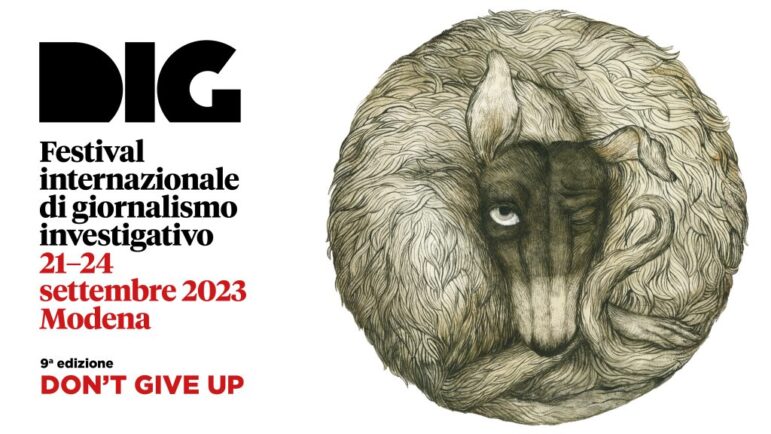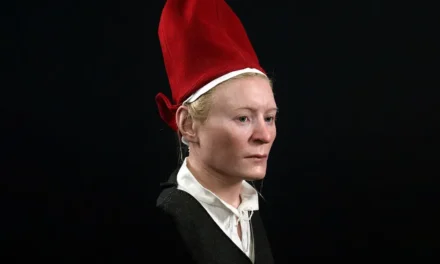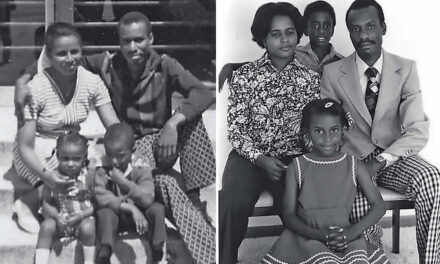Each year the jury for the DIG Festival scours hundreds of submissions to find the best investigative films and podcasts from around the world.
DIG — which stands for stands for Documentari, Inchieste, Giornalismi (“Documentaries, Investigations, Journalism”) — is a nonprofit organization that supports investigative journalism in Italy and worldwide.
This year the jury shortlisted 25 documentaries and six podcasts, from more than 400 entries, and will meet in the Italian city of Modena later this month to decide the winners.
Here we detail the films shortlisted for the long and medium investigative documentary categories, plus the reports that made the cut for the best investigative audio and podcasts. Projects shortlisted for the reportage categories and the shorts can be found on the DIG website.
Investigative Long
There are five documentaries shortlisted in this category — three from the BBC, one from Al Jazeera, and another finalist from Deutsche Welle. One of the documentaries investigates air pollution and the impact of gas-flaring on children living near oil fields in Iraq — GIJN spoke to the reporters behind the project earlier this year. Two of the films interrogate the topic of sexual assault — at work, and on public transport. Films in this category are over 40 minutes long and “use original sources and investigative techniques to bring out novel elements in relation to the subject matter,” according to the jurors.
The Caliphate Legacy (Deutsche Welle)

Image: Courtesy of DIG
This documentary tells the story of Ahmad Al-Ramdan, whose family was killed in eastern Syria, and details how he assembled a clandestine network of volunteers to try and track down former fighters from the Islamic State caliphate. DW says the film shows this group of “courageous individuals putting their own lives on the line to catch the extremists,” by infiltrating these groups in a global search for justice.
Catching a Pervert: Sexual Assault for Sale (BBC News)

Image: Courtesy of DIG
Many women are sexually assaulted while traveling on public transport. But this investigation, by BBC Eye Investigations found that there are also networks profiting from those same assaults: selling videos of women being attacked on trains, buses, and other crowded public places across East Asia on online marketplaces. The team tracked down the owner of the sites, heard from perpetrators, and spoke to the women on the receiving end of the abuse.
Gold Mafia (Al Jazeera)

Image: Courtesy of DIG
This is a four-part series by Al Jazeera’s Investigative Unit revealing how gold smuggling gangs in Southern Africa help criminals launder money. According to the filmmakers, these groups use a “complex web of companies, counterfeit identities, and fake documents,” and ensure they have the cooperation of corrupt and high-ranking officials who let these trades happen. You can read six key findings from the program in a text story by the team.
Sex for Work: The True Cost of Our Tea (BBC Africa Eye)

Image: Courtesy of DIG
This undercover investigation was produced as part of a collaboration between BBC Africa Eye and the investigative program Panorama, and uncovers evidence of sexual abuse on farms in Kenya. According to the documentary, women on plantations that supply some of the UK’s leading tea brands have been pressured to have sex with their bosses in return for work. A reporter spoke to dozens of women who complained about sexual assault or harassment, while an undercover camera caught one employer targeting a woman at her job interview.
Under Poisoned Skies (BBC News)

Image: Courtesy of DIG
While the broadcaster of this documentary may be based in the UK, “Under Poisoned Skies” is a film about Iraq and the impact of toxic air pollution. The protagonist is 18-year-old Ali, who had cancer as a child, and who is one of a number of young people featured in the film who want to know if their cancer is linked to the gas flaring facilities near their homes. The reporters follow a local environmental scientist as he takes samples from the children, while asking if local oil and gas producers are doing enough to keep local communities safe.
Investigative Medium
With reports from Italy, the Philippines, Myanmar, and the UK, there is a diverse range of investigations bidding for the best investigative documentary in this category, where films are between 15 and 40 minutes in length. Two look at how Europe is struggling to humanely handle a migration crisis, and another delves into how minority groups are treated in Myanmar. Others on the list investigate the mistreatment of Russian women in police detention, and online child sex abuse. Films were chosen for their use of “original sources and investigative techniques.”
101 East: Rohingya VJs (Al Jazeera English)

Image: Screenshot from the documentary
From 101 East, Al Jazeera’s in-depth, weekly current affairs program, comes this DIG-shortlisted documentary about Myanmar’s Rohingya Muslim community. Filmed inside the country — even as the deteriorating security situation has made that task increasingly complex and risky — filmmakers found a community that continues to experience discrimination, and, they say, exploitation, with limits on travel, access to education, and health care.
Death on the Border (BBC Africa Eye)
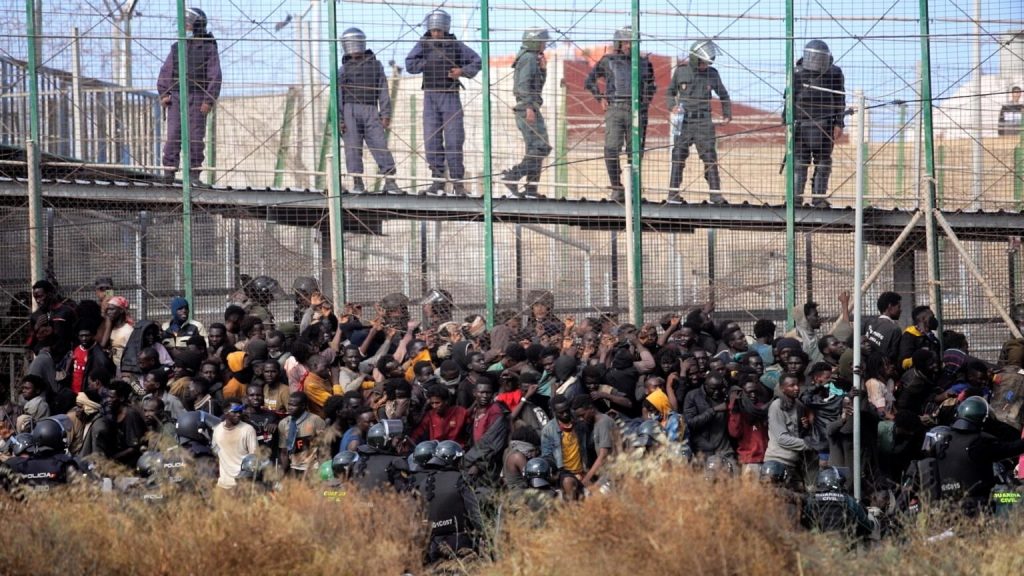
Image: Courtesy of DIG
In June of 2022, in the autonomous port city of Melilla, a tiny strip of Spanish territory in the north of Morocco, dozens of African migrants died in a confrontation with Moroccan security forces as they tried to cross the border. Mobile phone footage from the scene showed the tragedy playing out in this border zone, which is seen as a gateway for getting into Europe. The BBC Africa Eye team verified dozens of videos to interrogate what happened that day, and collected testimony from survivors, all while asking if the tragedy was preventable.
Finding My Torturer (BBC Eye)

Image: Courtesy of DIG
This documentary, from BBC Eye Investigations, details how a group of women transformed into investigators themselves after reporting mistreatment while in the custody of Russian security. The women were all arrested during large-scale anti-war demonstrations across Russia, and were held in the Brateyevo police station in Moscow. When the authorities did nothing to track down the “man in black” who they said assaulted and tortured them in detention, the women used a leaked database, social media, and dating profiles to find him — and his commanding officer — on their own.
On Their Skin (Rai News)
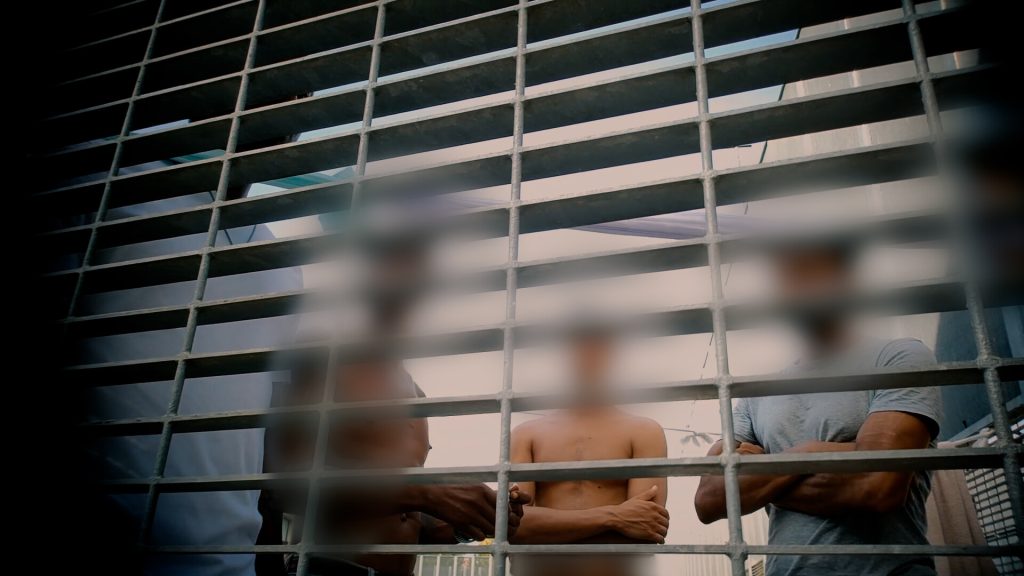
Image: Courtesy of DIG
Similar to Death on the Border above — a fellow contender for the Investigative Medium prize — this documentary dives into the topic of migration and uncovers uncomfortable truths about what is happening on Europe’s borders. This film looks at Italian government facilities where migrants without a residence permit are detained before being repatriated. Many of those living in these centers, which filmmakers describe as like a prison, are from Tunisia, Morocco, Egypt, and North Africa. Filmmakers investigate some of the deaths and episodes of self-harm that have occurred in the facilities and use undercover cameras to get inside the centers.
Philippines: Hell Behind Screens (Arte)
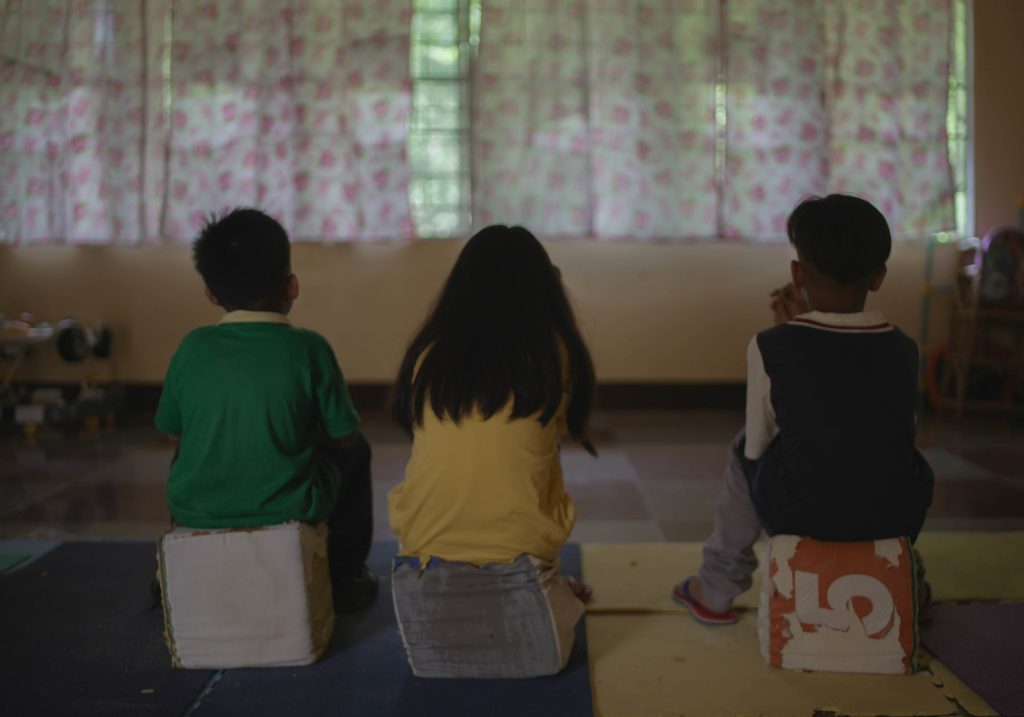
Image: Courtesy of DIG
This investigation covers an intensely troubling topic: how child sex abuse is being live-streamed to sexual predators in other countries. The documentary tells the story of an 11-year-old girl raped by her parents on the order of “mostly European sex offenders.” The filmmakers used documents related to her court case to explore how she was assaulted for cash, and trace the trail of abuse from the Philippines to Switzerland and the UK where the abuse was orchestrated.
Audio and Podcasts
Since 2020, DIG has had a category specific to investigative audio: previously shortlisted entries include the 10-episode immersive series Verified, and the French investigative podcast In Dark Waters. The category includes audio productions that have “an investigative approach, using investigative techniques and a novel slant.”
The Outlaw Ocean (Outlaw Ocean Project, CBC, and The Los Angeles Times)
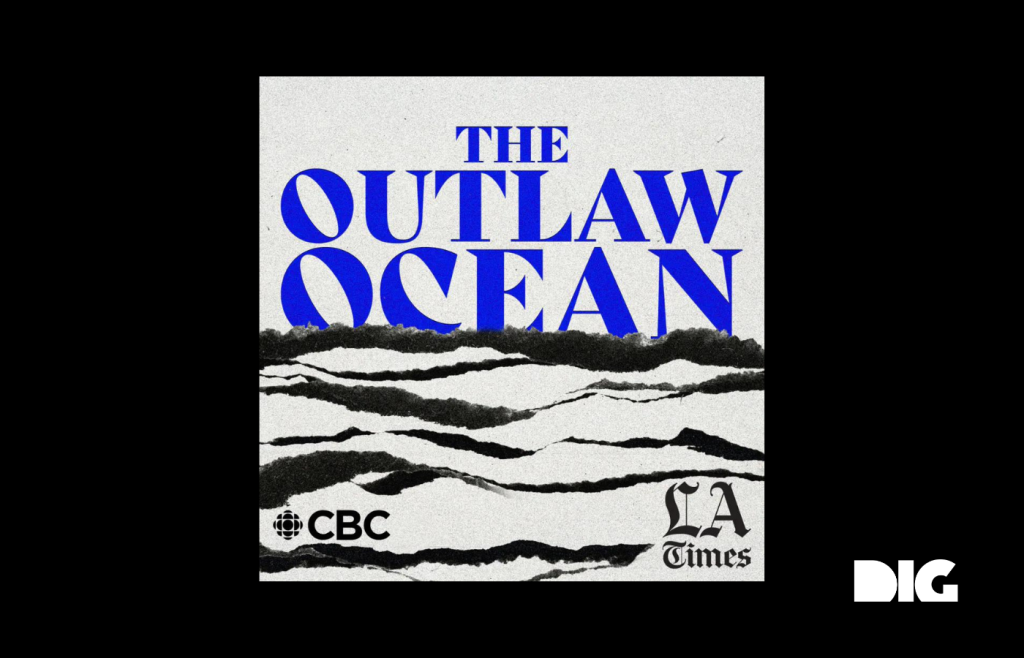
Image: Courtesy of DIG
The investigative journalist Ian Urbina seems to have mastered the concept of multi-platform content: The Outlaw Ocean project covers everything from a book, to video, to long-form text articles, to a podcast. For the DIG awards, the team’s seven-part podcast series, which chronicles tales about slave labor, mercenaries, vigilante conservationists, and many other topics, is shortlisted. GIJN interviewed Urbina about his podcast earlier this year, where he told us the project takes listeners to an under-reported “very otherworldly place,” reporting stories that are “often quite gritty and dark.”
Please Protect Abraham (Whistledown, BBC Radio 4)
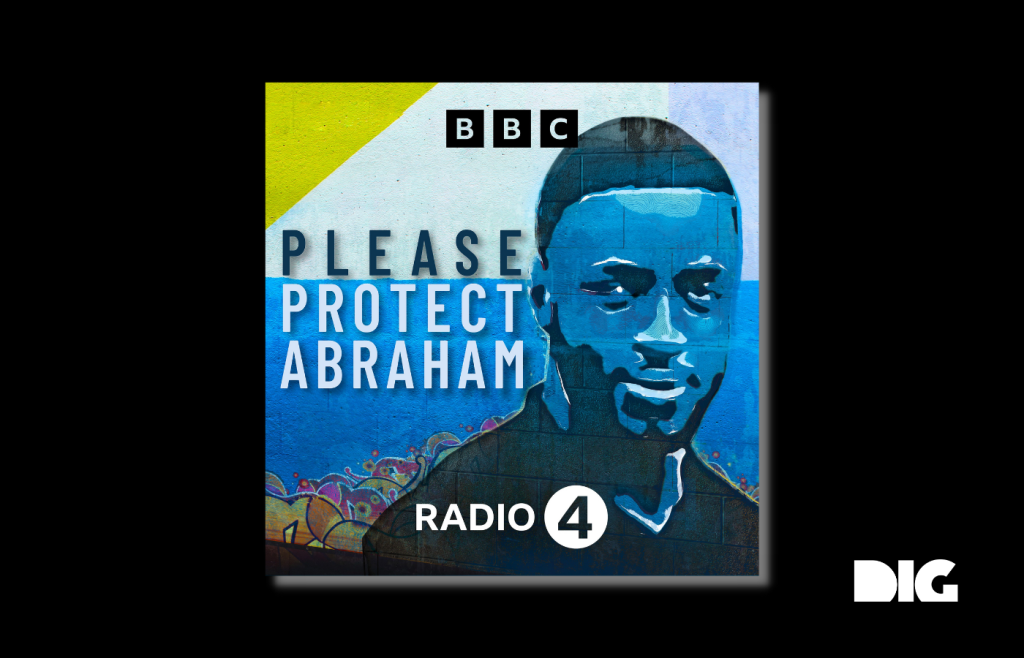
Image: Courtesy of DIG
Another BBC entry shortlisted in the podcasts category is Please Protect Abraham, a series investigating the witness protection system in the UK. This podcast explores the case of Abraham Badru, who as a teenager testified in court, leading to a number of people being imprisoned for an attempted gang rape. He was later shot dead outside his home after receiving numerous threats. The program questions if the criminal justice system is failing to protect those who do the right thing, and questions whether factors like the color of his skin affected the decisions made about his case.
Phantom — The Unabomber Case (OnePodcast)
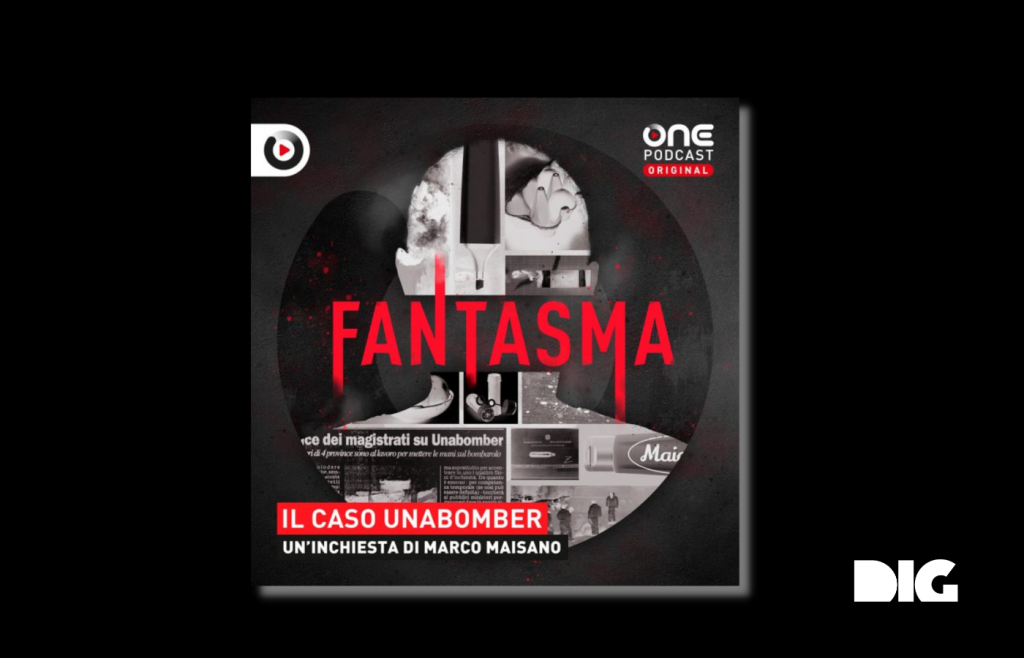
Image: Courtesy of DIG
From Italy, a seven-part investigative series in which reporter Marco Maisano delves into the wiretaps, documents, and police files to try and find out more the “Unabomber,” a mysterious Italian terrorist. For more than a decade — between 1994 and 2006 — this attacker disguised bombs in chocolate eggs and condiments, targeting both children and adults. The reporter speaks to victims, investigators, forensic experts, and even the main suspect.
Cold Front (DR)

Image: Courtesy of DIG
An investigation straight from the pages of a John le Carré novel… This podcast is the result of a year-long investigation into Russian spying at sea, launched after Moscow’s decision to start a full-scale invasion of Ukraine. One part tells how a Danish journalist finds himself out at sea between Denmark and Sweden when he spots a suspected Russian spy ship, whose armed crew has spotted him, too. Ultimately the team work to identify a number of Russian intelligence officers operating in the Nordic countries, investigate hidden ships lurking near key infrastructure sites, and explore disinformation tactics, all of which, they say, gives “rare insight into how Russia conducts espionage.”
County Lines (Falling Tree, BBC Radio 4)
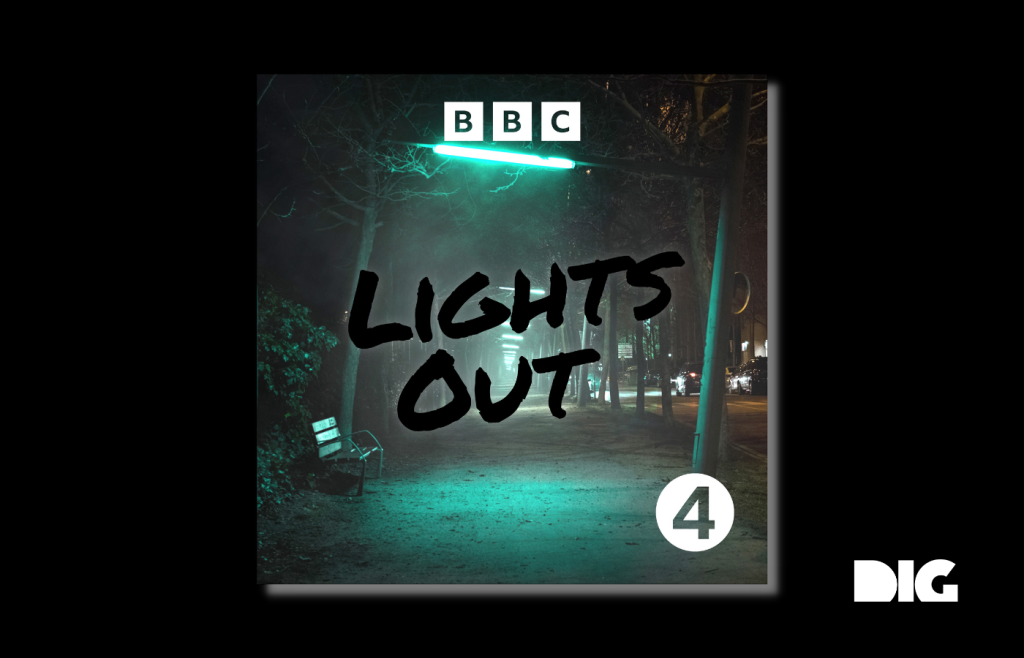
Image: Courtesy of DIG
This BBC podcast explores how an underground criminal network operates on the backs of children and vulnerable adults. The reporters speak to four young people who each explain how they became involved in so-called county lines gangs, detailing how they were groomed. “County lines” is a form of exploitation in which criminals coerce young people and vulnerable adults into working as mules, transporting illegal drugs from one area to another, often across police and local authority boundaries. The so-called lines refer to the mobile phones used to take the orders.
Cinema Eros (Corriere della Sera, Chora)
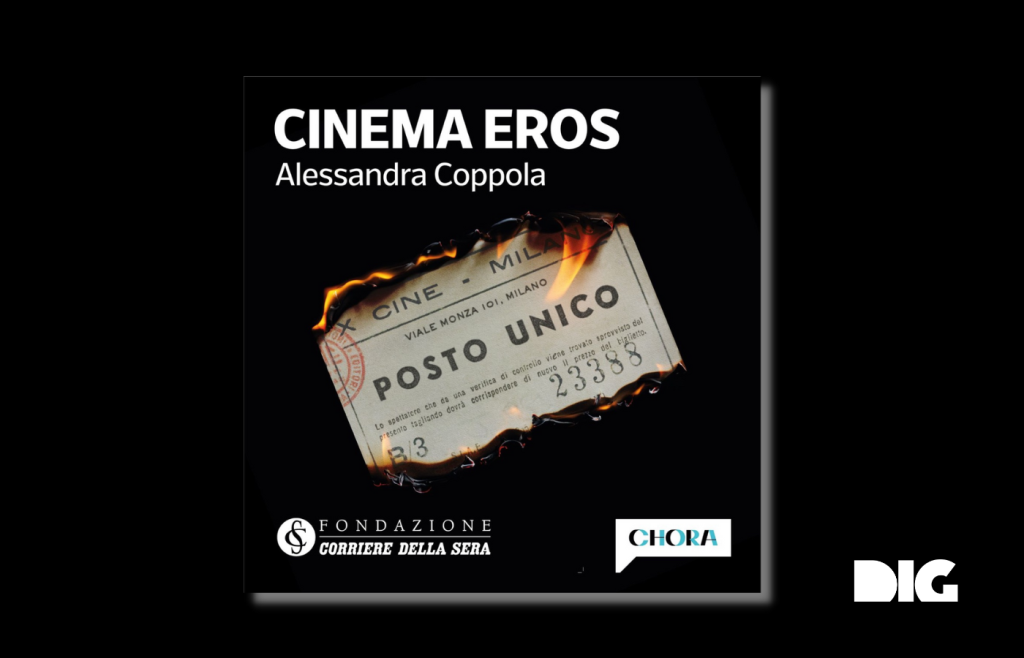
Image: Courtesy of DIG
A second Italian-made finalist explores a fire that took place in a red-light district cinema in Milan in May 1983. Six people died as a result of the blaze, started by neo-Nazi fanatics whose twisted logic was, in their minds, to try to purify the world. Two people were convicted of the crime. Producers speak to witnesses and trawl newspaper coverage to recount what happened, track down and interview the wife of one of the men who died, and ask if anyone else was involved.
Additional Resources
How to Reach Hard-to-Access Stories — and Audiences — with Audio
A Global Tour of Investigative Podcasts: The 2022 Edition
Podcasting Goes Visual: How Video Can Help Investigative Storytelling Reach New Audiences
 Laura Dixon is an associate editor at GIJN and a freelance journalist from the UK. She has reported from Colombia, the US, and Mexico, and her work has been published by The Times, The Washington Post, and The Atlantic. She has received fellowships from the IWMF and the Pulitzer Center.
Laura Dixon is an associate editor at GIJN and a freelance journalist from the UK. She has reported from Colombia, the US, and Mexico, and her work has been published by The Times, The Washington Post, and The Atlantic. She has received fellowships from the IWMF and the Pulitzer Center.

